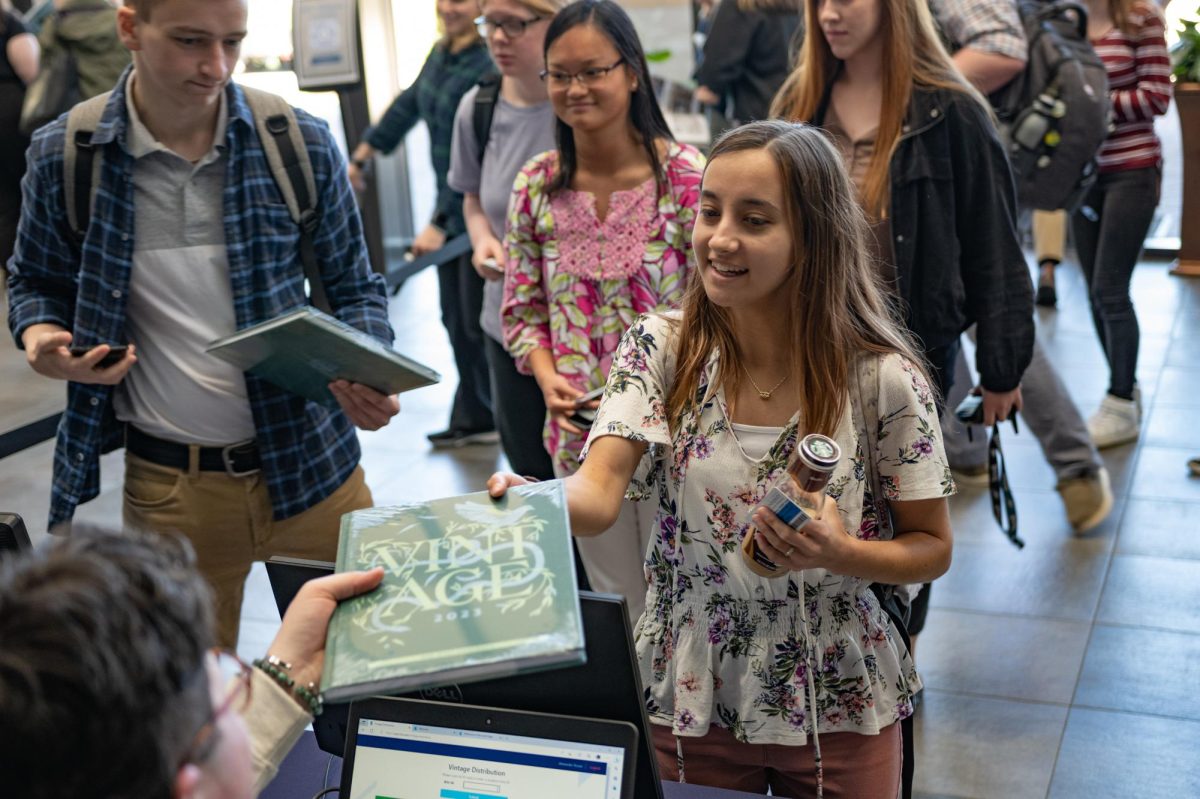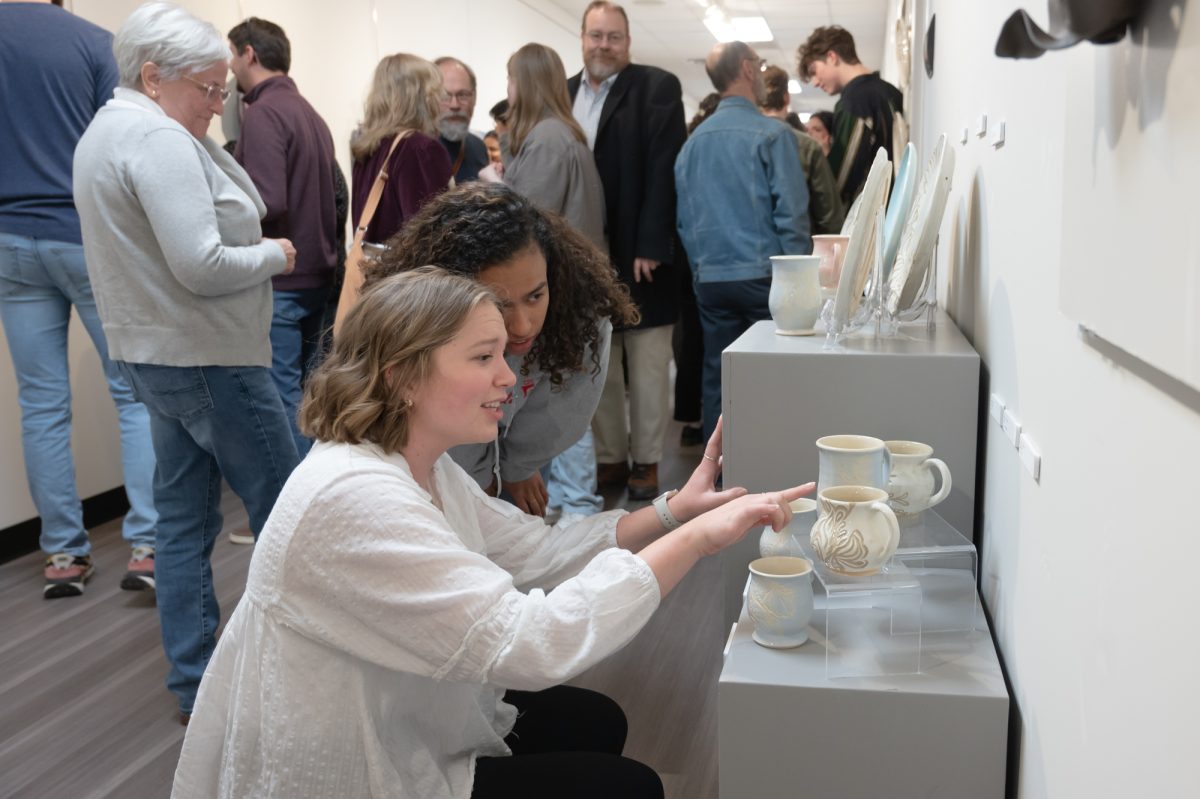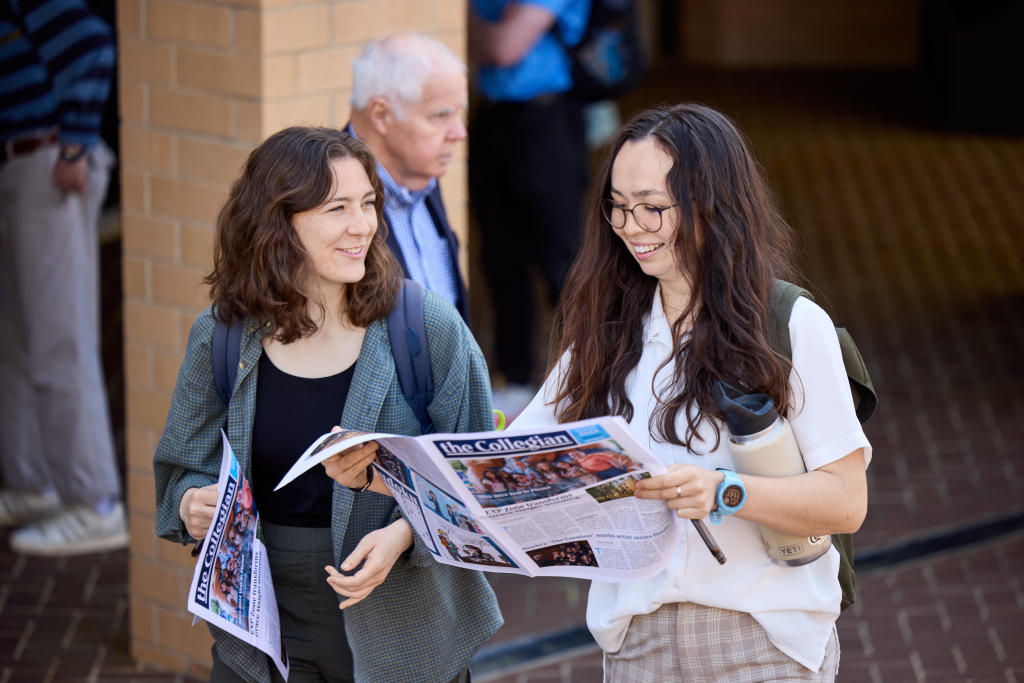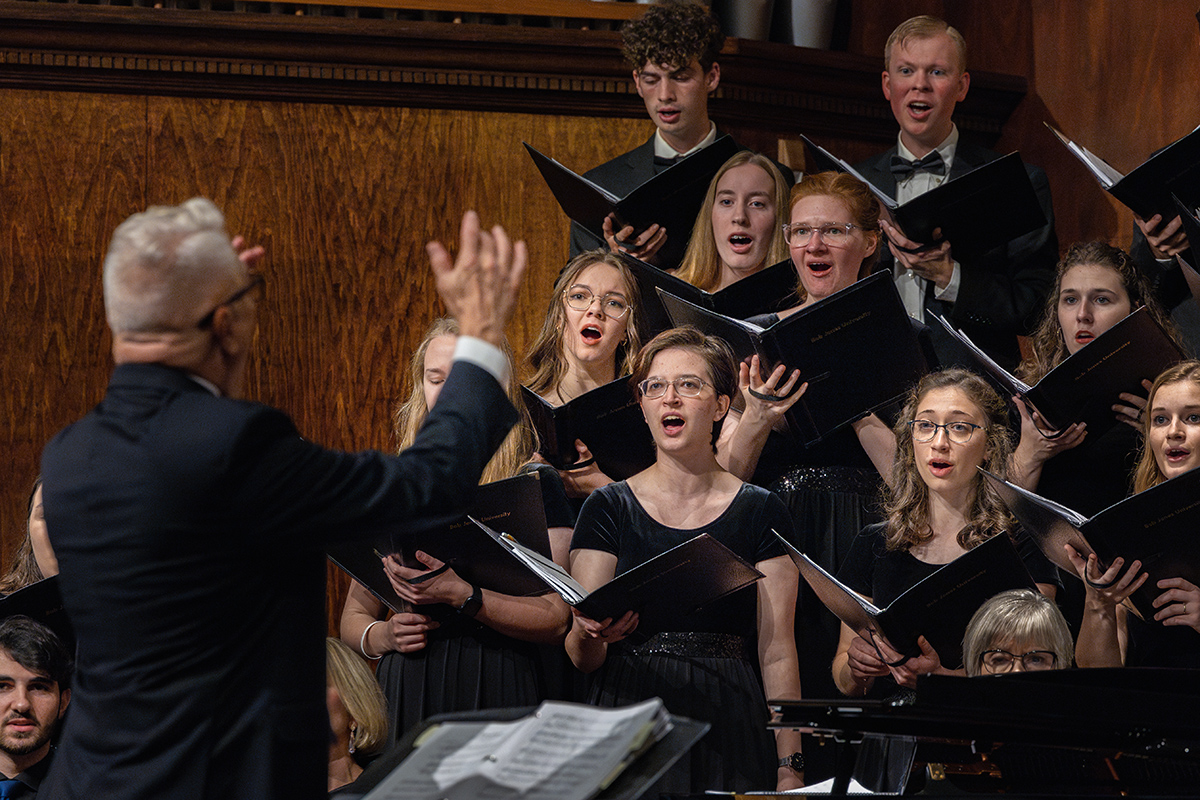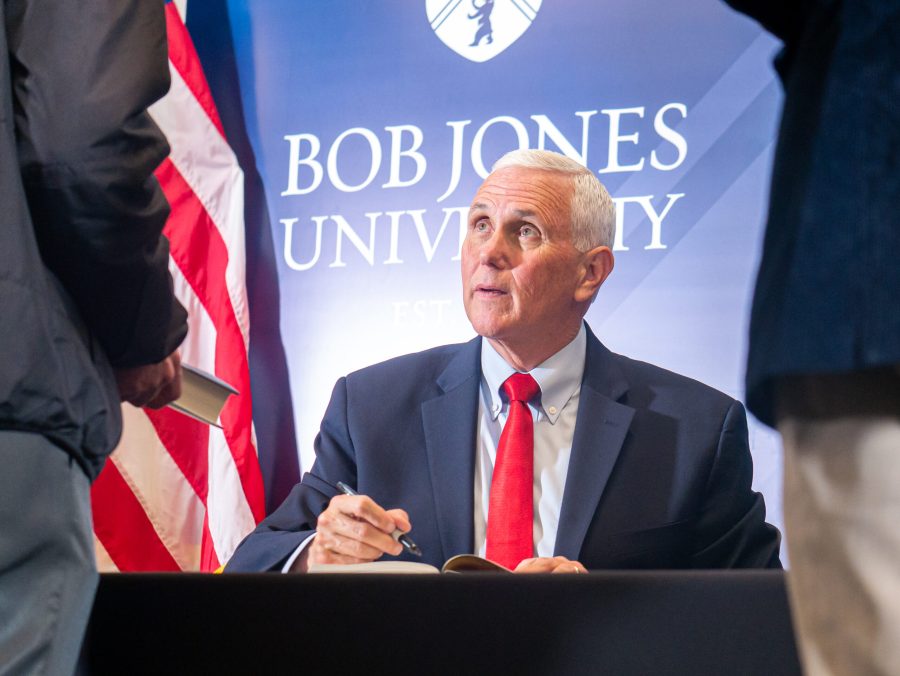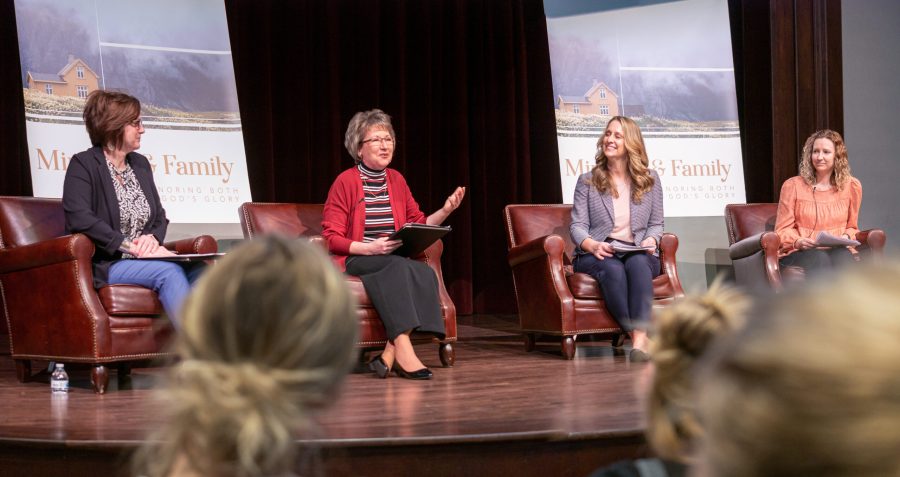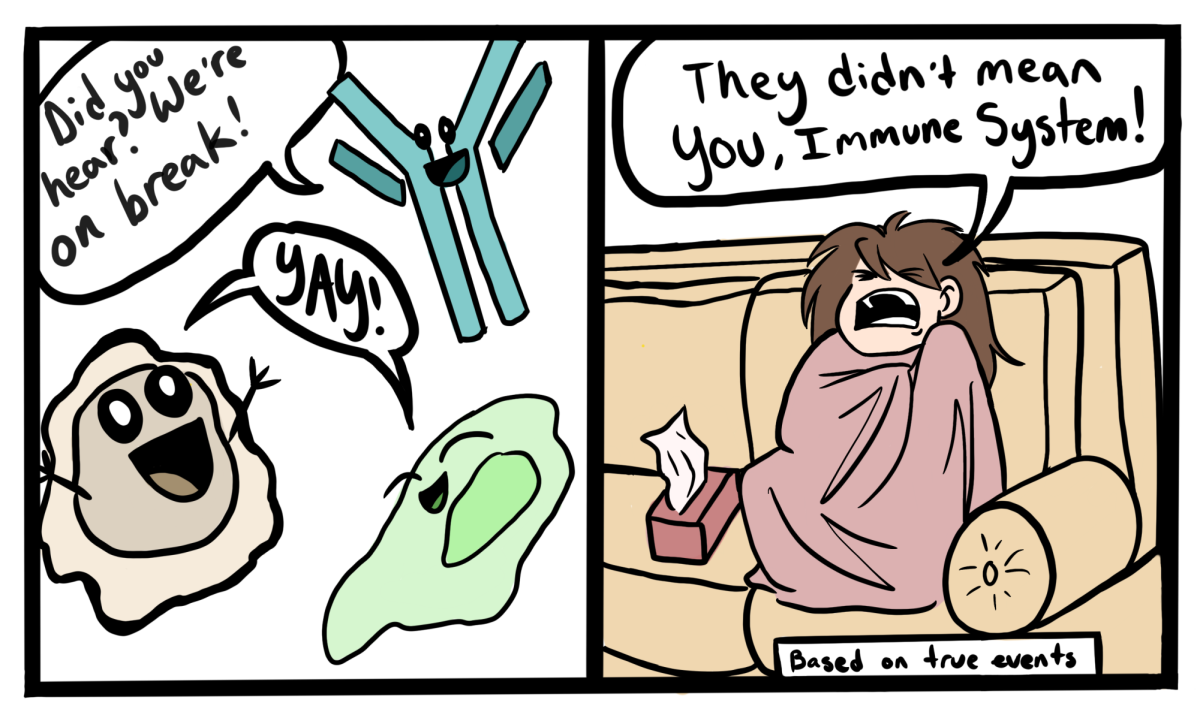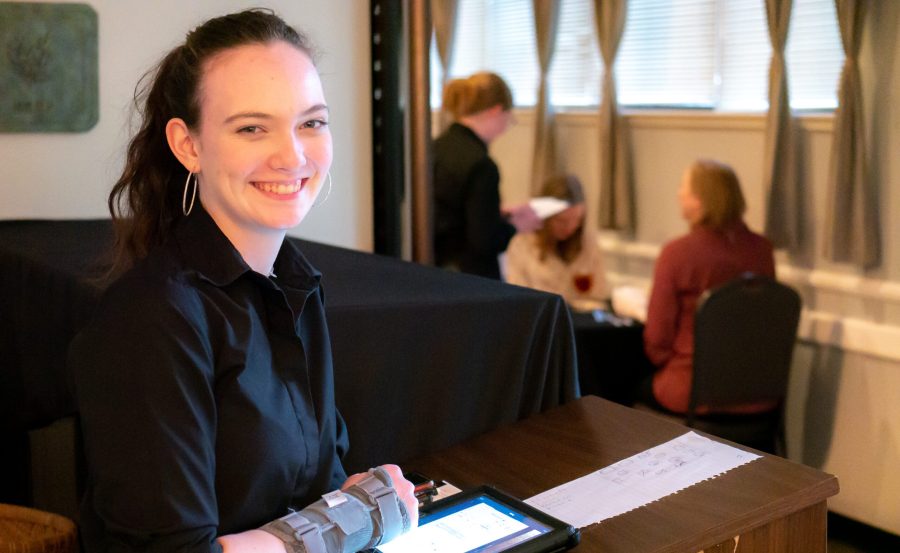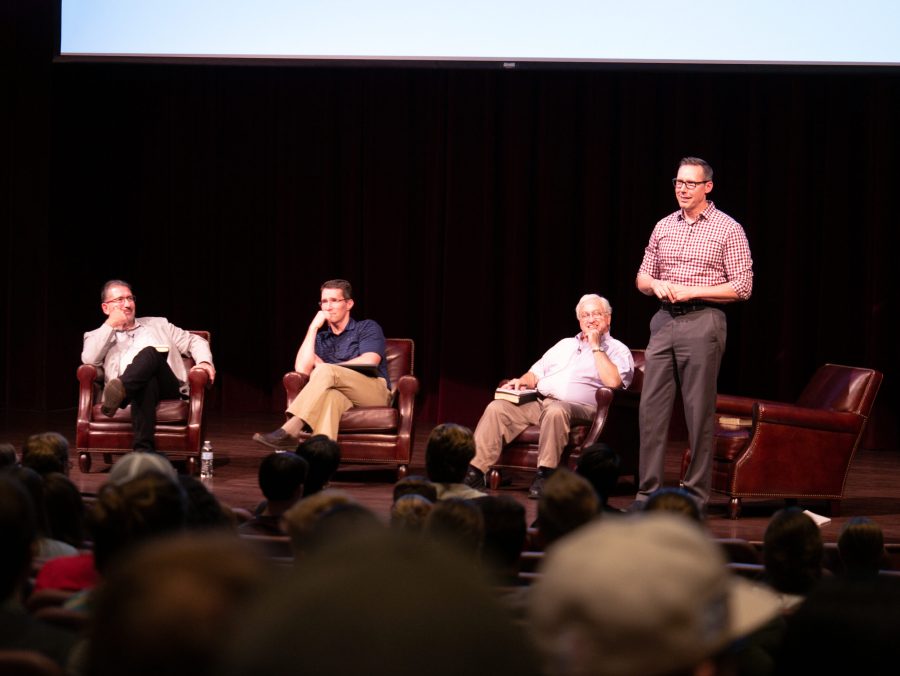The Center for Biblical Worldview held three faculty forums throughout the semester where professors spoke on scientific topics relating to Christianity. The purpose of the forums was to orient students by using a biblical worldview and scientific facts to combat popular worldviews.
Is gay Christianity Christian?
This forum was put on by the Center for Biblical Worldview to give students a biblical contrast to the messages they are constantly bombarded with from the world. “Students have access to everything all the time, and social media is winning the argument of the day,” Center for Biblical Worldview Director Dr. Renton Rathbun said.
The forum included a panel discussion with three faculty members speaking, each picked by Rathbun for a specific reason. Dr. Brenton Cook, a faculty member in the Division of Biblical Studies and Theology, provided a strong understanding of church history and theology. Dr. Samuel Horn, senior pastor at Palmetto Baptist Church and professor in the BJU Seminary, brought extensive experience as a pastor and Seminary professor. Dr. Marc Chetta, faculty member in the department of biology, presented the medical understanding of the topic using statistics and research.
“I hope students came away with the answer to the question, ‘Is gay Christianity, Christian?’” Rathbun said. “This is not coming merely from a straight man that doesn’t understand what they are feeling. This comes from Rosaria Butterfield, who has lived that life.” Butterfield is a prominent figure and author in Christian circles regarding the homosexual community.
The forum finished with a time for audience members to ask anonymous questions. Around 250 people attended the event, which was held in Stratton Hall.
A biologist’s perspective on the image of God in man
The purpose of this forum was to combat the idea that man is no different from animals. When looking at the similarities between man and animal, Gary Weier, provost and executive vice president for academic affairs, was the mediator for this forum. Dr. David Boyd, head of the department of biology, and Dr. Ted Miller, professor in the Division of Biblical Studies and Theology, presented the scientific and theological case for human uniqueness.
“Humans are made distinct for the purpose of bearing the image of God,” said Boyd. Although humans do share several characteristics with animals, especially mammals, Boyd pointed to the key differences between people and animals.
What are those difference? Bipedalism and the ability to speak, according to Boyd. Humans can reflect the image of God in both characteristics. Bipedalism is the characteristic of having two legs and using them to walk — an ability only humans use to farm, avoid predators and have better relationships. “We create because we are bipedal,” Boyd said. Animals do not make art the way humans do, and animals hunt and gather food without complex agricultural systems. Bipedalism enables humans to exhibit the image of God when they create things, just as God created the universe, said Boyd.
Cavemen or Artists? On the Emergence of Human Intelligence
The third faculty forum covered early evidence of human ingenuity and creativity in art, agriculture, and metallurgy. This evidence shows that humans were intelligent in the earliest parts of history.
Dr. Cook spoke at the forum, and afterwards David Lovegrove, chief marketing officer of BJU, came on stage with questions for Cook and a brief talk about more evidence of early human intelligence. The forum then opened for student questions.
Cook discussed the discovery of sophisticated drawings of animals painted on the walls of caves. These paintings are evidence of early intelligence and are proof against the evolutionary theory that human intelligence took a long time to evolve. Agriculture also provides evidence of early human intelligence. “The ground was cursed in the Fall, but human ingenuity is part of God’s common grace,” Cook said. “God has given creativity and ingenuity to his image bearers.”

